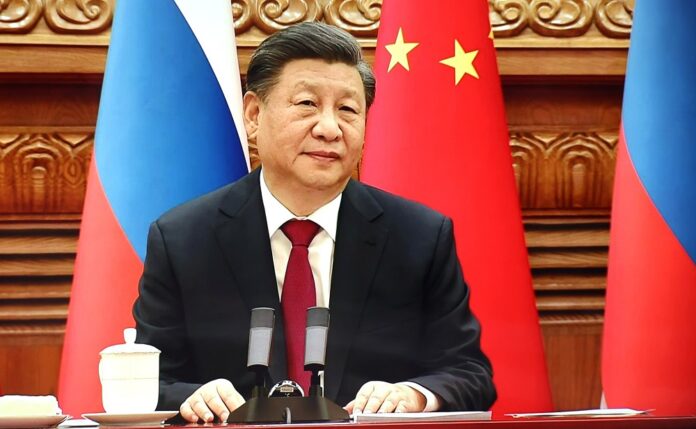Facing extensive Western sanctions, Moscow has increasingly relied on Beijing for economic and security support. Last week, as Russian President Vladimir Putin visited Chinese leader Xi Jinping in Beijing, both leaders presented a unified stance against the U.S.-led global order. However, beneath the surface, the relationship is far from equal, the Wall Street Journal writes.
China has provided a vital lifeline to the Russian economy, supplying it with a wide range of goods from electronics to agricultural machinery. While China represents around 33% of Russia’s trade, Russia accounts for a mere 4% of China’s total trade. This disparity underscores the imbalance in their economic partnership.
China is crucial for Russia’s defense industry, providing essential materials like optics and microelectronics. In contrast, Russia’s arms exports to China have significantly decreased. Moreover, with Europe shunning Russian oil and gas, Russia has been forced to sell to China at steep discounts. Beijing has used this leverage to drive hard bargains, delaying major projects like the new gas pipeline until terms are more favorable.
“It’s a strategic partnership where both sides need each other, but it’s increasingly asymmetrical in China’s favor,” notes Alexander Gabuev, director of the Carnegie Russia Eurasia Center in Berlin in a commentary for the Wall Street Journal.
Despite this growing imbalance, the relationship between these nuclear-armed nations has significant implications for the West, including heightened military collaboration and increased geopolitical tensions in Africa and Asia. Their burgeoning oil and gas trade is reshaping the global energy landscape.
Western officials are concerned that China’s support might enable Russia to sustain its war effort in Ukraine. Recent meetings with Xi by European leaders and U.S. Secretary of State Antony Blinken have urged China to reduce its support for Russia’s defense industry. The U.S. has also warned Beijing of potential sanctions on Chinese banks involved in dual-use goods trade with Russia.
Russian officials dismiss claims of dependency on China. However, the reality shows a different picture. Putin’s visit, his first foreign trip since a recent election, underscores the importance Russia places on its ties with China, writes the WSJ.
Historically, Sino-Russian relations have fluctuated between cooperation and competition. Following the annexation of Crimea in 2014, Russia pivoted towards China to mitigate the impact of Western sanctions. The relationship deepened further after Russia’s 2022 invasion of Ukraine, with both nations declaring their friendship has “no limits.”
Despite this, the flow of high-level visits has been largely one-sided, with Russian officials frequently visiting China. Trade in dual-use goods, critical for Russian military capabilities, surged following a key meeting between Xi and Putin last year. This trade helps sustain Russia’s defense sector, enabling a prolonged conflict in Ukraine.
Economically, the relationship remains skewed. Bilateral trade hit a record $240 billion last year, but this pales in comparison to China’s trade with the EU and the U.S. The influx of Chinese goods has also filled gaps left by departing Western brands in the Russian market, dominating sectors from electronics to automobiles.
In conclusion, Russia’s dependence on China is growing, a trend likely to continue, as analysts suggest. This dependency, while mitigating isolation, places Russia in a junior partner role, fundamentally altering the dynamics of their relationship and its impact on global geopolitics.



